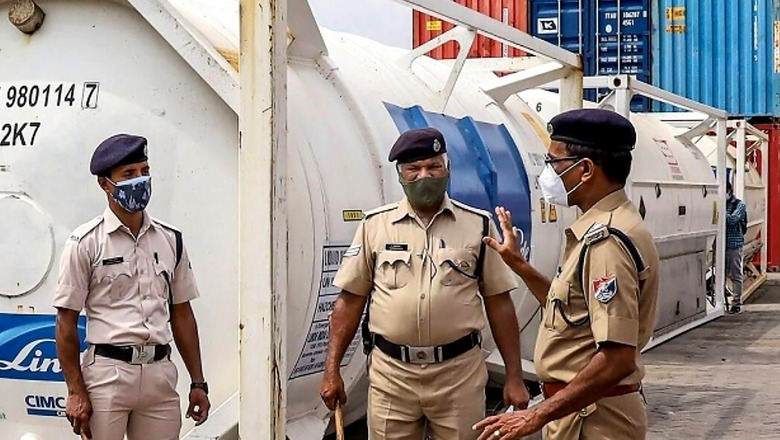
views
While many cheering over the ‘accidental death’ of the Jorhat mob lynching accused in police custody, the latest incident of mob violence in Assam has once again raised the context of the Anti-Lynching Act, especially for Assam.
People showing a lack of trust in the judicial procedure are hailing the ‘quick justice’ delivered in a particular situation. But concerns are raised as such ‘on the Spot Justice’ will certainly not going to curb more similar incidents unless there is a law particularly meant to deal with these circumstances. Notably, Manipur passed an Anti-Lynching Act soon after Supreme Court’s direction in 2018 and Assam which frequently remains in the headline for mob lynching is yet to follow its neighbour’s footsteps.
The list of people killed in mass lynchings in Assam is quite long. A year ago a person named Sanatan Deka was killed by a group of men Guwahati. After just a few days, 23-year-old Debashish Gogoi was killed similarly in Jorhat. Before that, 16-year-old Jhankar Saikia was killed in Dipu in 2013. Guwahati youths Nilotpal Das and Abhijit Nath were attacked and killed by a mob in Karbi Anglong in 2018. These frequent brutal incidents only expedite the need for a separate law to deal with mob lynching. In the Jorhat district alone, there have been three mob killings in the last three consecutive years. In 2019 Dr Deben Dutta, in 2020 Debasish Gogoi and last Wednesday Animesh Bhuyan were lynched to death in the same district. Every time these incidents occur there will be an emotional surge and flow of temporary discussion on different platforms but after a few days, people tend to forget about it until the next case shows up.
The Supreme Court in 2018 termed the mass lynching as a “horrendous act of mobocracy” and directed the Centre and the State to make a separate Anti-Lynching Act. While the Assam government is yet to take any step towards enacting that law, Manipur, on the other hand, has set an example by becoming the first State in the country to enact a law to prevent mass lynching.
The law passed in the Manipur assembly soon after the SC verdict has defined mass violence specifically and has included some special arrangements to deal with such cases including the appointment of a nodal officer in each district to prevent mass lynching. The Manipur law is in sync with the Supreme Court guidelines. It states that police officers who fail to prevent the crime of lynching in their jurisdiction are liable to be imprisoned for a term that may extend from one to three years with a fine limit of Rs 50,000. The law also requires the State to formulate a scheme for relief camps and rehabilitation in case of displacement of victims, and death compensation.
Inspired by this, Rajasthan and West Bengal have formulated their version of laws to curb mob lynching. The West Bengal law is more stringent as it provides for punishment for lynching to death and is punishable with the death penalty or life imprisonment and a fine of up to Rs 5 lakh.
However, all these acts have not yet received the approval of the Union home ministry. The President will put a final seal after the Union Home Minister approves aspects of the constitutional validity of the laws if they are in sync with the Central Law etc. As per prevailing norms of the Union Home Ministry, the State laws are examined from three angles — repugnancy with Central laws, deviation from national or central policy and legal and constitutional validity.
In June, a pan-northeast legal group has renewed its demand for enacting a law to deal specifically with cases of mob lynching. The Assam-based North East Legal Organization (NELO) refreshed its year-old demand following the mob assault on a doctor at a Covid-19 care centre in Assam’s Hojai district on June 1. A mob assaulted Dr Seuj Kumar Senapati on duty holding him responsible for the death of a Covid-19 positive person who, healthcare officials confirmed, died by the time he reached the centre. In the demand letter, the organisation mentioned, “Cases of mob lynching generally come under the purview of the Indian Penal Code of 1860, but even the IPC doesn’t specifically deal with mob lynching as an offence. A specific and strict penal statute on mob lynching shall definitely help the State in the intervention and prevention of such instances.”
In the previous year, the organisation also wrote a similar letter to then Chief Minister Sarbananda Sonowal after two back to back lynching murders took place. The organisation raised concern after Sanatan Deka was lynched to death in Guwahati on May 23 and 23-year-old Debasish Gogoi in Jorhat district on May 29.
The timeline shows lynching has become an increasing social menace all across India including Assam, therefore the need for a special act that specifies the punishment for the accused and rehabilitation of the victim or kin is a very much pertinent demand.
Read all the Latest India News here


















Comments
0 comment